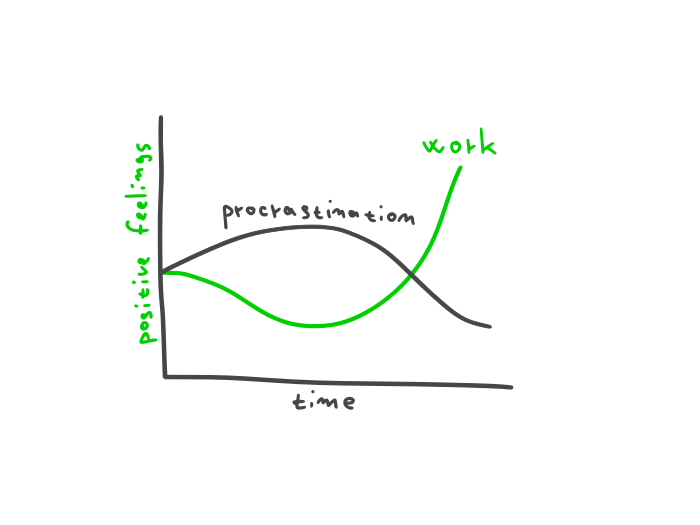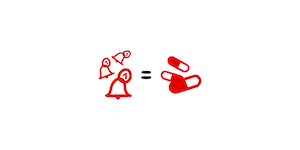Why and How We Procrastinate
Procrastination
= a short-term escape from stress associated with a task or a decision.
You encounter a task:

And for some reason (we’ll get into that), you feel stressed about it. You feel uncomfortable. You don’t feel like doing it.

So you do something else instead. Watch TV series, check phone, eat some food,... anything that makes you feel better immediately.

That’s the basic procrastination dynamic.
The Procrastination Rollercoaster
Researcher Roy Baumeister describes procrastination is a type of self-regulation failure - a failure to control your emotions and stop them from affecting your work. The important part is that procrastination is all about feeling better now, about emotions, not rational thinking.
Procrastination feels better now.
Productivity feels better later.

The crucial part is this:
procrastination will leave you feeling MUCH worse off than any kind of productive effort in the end.
How We Find Justifications for Procrastination
Procrastination is all about emotions, but our emotional side needs to bring our rational part on board somehow, otherwise we wouldn’t go into the Feel Good Land.
That’s why we find a justification for procrastination.
It’s nice outside.
I’m tired.
I don’t know where to start.
I need to do more research.
I don't have enough time today.
Let's just plan it out today.
I need to clean my PC.
The room is dirty.
I'm hungry.
…
The key is that the justification sounds plausible, reasonable, and is true. Then it’s harder for our rational self to disprove it.
Once we have a good justification and our rational self is neutralized, we have free passage into the Feel Good Land.
Summary: How Procrastination Works
To sum it up, procrastination is an escape from stress caused by something we need to do.
Procrastination is about feeling good right now.
To neutralize our rational self, we devise a justification that enables us to do something that makes us feel good.
Over time procrastination becomes a habit. It becomes our ingrained response to stress.

